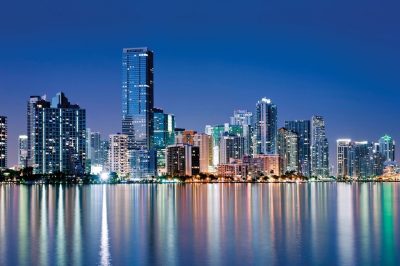 The Eleventh Circuit of the US Court of Appeals ruled that the Federal Government has the right to collect taxes from casinos operated by Native American tribes. According to the Court’s ruling, taxes could also be collected from tribal members who receive disbursements from such casinos, which are also known as racinos.
The Eleventh Circuit of the US Court of Appeals ruled that the Federal Government has the right to collect taxes from casinos operated by Native American tribes. According to the Court’s ruling, taxes could also be collected from tribal members who receive disbursements from such casinos, which are also known as racinos.
The US 11th Circuit Court of Appeals upheld a ruling of a Miami federal judge who had previously ruled that the Miccosukee tribal member Sally Jim must pay a total of $278,758 in taxes, interest, and penalties to the Internal Revenue Service after failing to file a tax return back in 2001. The ruling of the US Court of Appeals comes two years after the US District Judge Cecilia Altonaga issued a ruling, according to which the gaming income of the tribal member was not free from an obligation to pay taxes under US federal laws.
The three appellate judges’ ruling could help the Federal Government collect overdue personal income taxes amounting to more than $1 billion. According to the Court of Appeals’ opinion, the national Congress was clear enough when it comes to federal income taxation on so-called per capita payments which originated from gaming revenue.
Case Could Be Taken to US Supreme Court
 The ruling of the US Court of Appeals, however, may not put an end to the legal fight between the Miccosukee tribal member and the authorities.
The ruling of the US Court of Appeals, however, may not put an end to the legal fight between the Miccosukee tribal member and the authorities.
After the three appellate judges announced their ruling on the case, reiterating the US District Court’s decision, the lawyer of the Indian tribal nation Robert Saunooke said that the tribe was disappointed with the decision. He further revealed that the Indian nation was considering a number of options, including an appeal to the US Supreme Court.
The legal battle between the Miccosukee tribe and the US Internal Revenue Service has been running for a long time now. As mentioned above, the reason for the case was the tax revenue generated from the Indian tribal nation’s resort and casino.
Currently, there are more than 600 members of the Miccosukee tribe, with them receiving an amount in the range from $120,000 to $160,000 on an annual basis, with the money being driven from gambling revenue. As explained above, yesterday’s ruling of the US Court of Appeals could strengthen the chances of the Internal Revenue Service to finally collect taxes on the gambling revenue which has been generated over the years.
According to the judge in the case, Billy Cypress who had been occupying the position of the Miccosukee tribe’s Chairman in the period from 1995 to 2009, and then became Chairman once again in 2016, had instructed the tribal members to conceal the income generated from gambling operations in order to avoid paying taxes to the Federal Government.